Do you trust them? Do they trust you?
presenter: David Bouchard
when: Day 1 – Open presentation
KEYNOTE SPEAKER
At this momentous time in Canadian history as we attempt to implement the recommendations of Truth and Reconciliation, do we have reason to be hopeful or have centuries of deceit killed all hope? Do Canadians trust one another? Should we? Do our students trust those responsible for their well-being? Should they?
Learn More
Achieving Excellence for the Whole Child
![]()
presenter: Denise Dwyer, Patrick Case
when: Day 1 – Open presentation
OnTARIO Ministry OF EDUCATION KEYNOTE
Denise Dwyer and Patrick Case will engage participants in a conversation about the student experience in Ontario schools. The Ministry of Education is working with our education partners, as well as with students and families, to re-envision and transform the classroom teaching and learning experience, revitalize the curriculum, and increase access and opportunity for all students to reach their full potential by removing systemic barriers and discriminatory biases. Denise and Pat will discuss how a whole-child approach that promotes equity of outcomes, well-being, and continued improvements in achievement, as the foundation of healthy and vibrant schools.
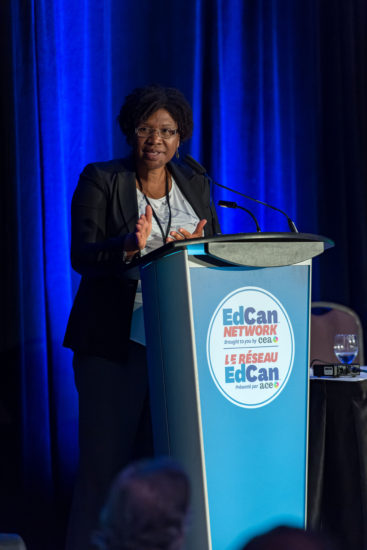
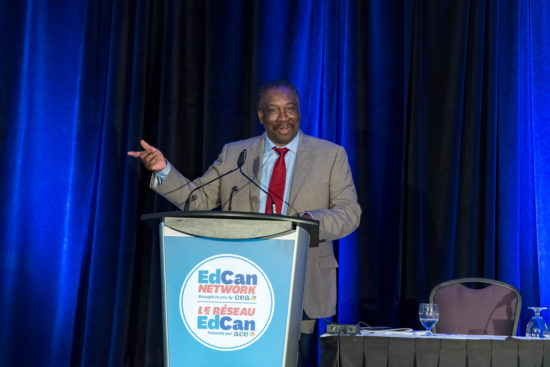
Pursuing Joy in a Complex World
presenter: Dean Shareski
when: Day 2 – Open presentation
Keynote speaker
Few would argue that joy is a worthy pursuit. However, the challenges and demands of education have made this somewhat elusive. We’ll re affirm why joy is an important goal of education, what subtle and not so subtle obstacles make this difficult and some practical ways we can all make room and space for more joyful learning and living.
Check out or re-experience this presentation
https://discovery.box.com/s/302nxz0a03pge6350d8leb5ckounz0ni
Learn MoreMaking the Connection Between Youths’ Social Media Use and Their Well-being
presenter: Dr. Valerie Steeves
when: Day 1 – Closing presentation
KEYNOTE PRESENTATION
In the summer of 2016, a group of youth in a small city in Ontario decided they wanted to explore the ways that their media use effected their sense of well-being. Researchers tracked their experiences before, during and after a week-long media fast. This keynote presentation connects these fascinating findings with the concerns raised by teachers about students’ social media use as part of a 2016 survey conducted by the Canadian Teachers’ Federation and MediaSmarts.

Getting to the Heart of Wellness
![]()
presenters: Mimi O’Bonsawin, Stephen Hurley
when: Day 1 – Session 3
HANDS-ON MUSIC WORKSHOP
Rediscovering the Rhythm and Rhyme in our lives and the lives of our students
We all have the ability to be songwriters. In this interactive session of singing, music-making and story-telling, singer/songwriter Mimi O’Bonsawin will help participants explore the importance of music in their lives to open up a new language for wellness and well-being.
Participants will gain an appreciation for the value of offering our students the opportunity to become attuned to the “music” in their own lives and be open to creating spaces in our schools and communities for artistic exploration and expression at all ages.
“Often, we intellectualize our conversations around wellness, wrapping them in words, phrases and terminology. In the same way, our responses to issues of wellness and mental health tend to ignore the power and importance the Arts – music in my case – to provide different ways of knowing and expressing ourselves.” – Mimi O’Bonsawin
Learn MoreAchieving a Healthy School Culture… How to heal the wounds!
![]()
presenter: Andrew Retchless
when: Day 1 – Session 3
TIPS FOR LEADING HEALTHY SCHOOL CULTURES
Toxic school cultures create high levels of stress throughout the entire building. Teacher’s are less productive, student learning stagnates and change projects get derailed. It’s essential to develop healthy school cultures for everyone’s well-being.
Participants will be challenged to reflect on the current state of their own “cultures” and build understanding for why some people react so negatively to change initiatives and why positive collaboration does not take place without building trust. They will leave with a clear set of tasks to initiate improvements to their own work environments.
“Education is an emotional profession. Yes, we need the technical structures, but at the end of the day it’s all about relationships. For support staff, teachers and administrators, the emotional intelligence required to manage cultural change must be supported by a clear framework that allows people to feel secure enough to “believe” in the collective direction the group is taking to improve the educational process in their milieu.” – Andrew Retchless
Learn MoreBoosting Marginalized Students’ Success and Well-being
![]()
presenters: Nancy Janelle, Meghan Loewen Cook
when: Day 1 – Lunch
PANEL DISCUSSION – VOICES FROM HEALTHY HIGH SCHOOL CULTURES
Wayfinders is an afterschool tutoring and mentoring program that has boosted graduation rates for students disadvantaged by poverty from 52% to 86%. The Met School pairs each student with a single teacher advisor through all four years of high school to develop projects and internships built around their interests. With a near perfect on-time graduation rate, the Met School has become so popular the school division has opened a second location.
Educators and students from these two award-winning programs will share their insights on how high schools can focus on persistent relationships and real engagement to bolster student success and well-being.
Ask us for the presentation info@edcan.ca
Learn MoreHow Encouraging Political Literacy and Engagement Amongst Indigenous Youth Promotes Mental Wellness
![]()
presenters: Riley Yesno, Ronald Gamblin
when: Day 2 – Session 4
MENTAL WELLNESS BEST PRACTICES FOR EMPOWERING INDIGENOUS STUDENTS
When you believe that your life is out of your control, you become more susceptible to mental wellness issues and academic failure. In this session, two Indigenous youth activists will share best practices for how educators can give that sense of control and mental wellness back to students to encourage their personal growth.
Learn MoreAdventures in Social Emotional Learning
![]()
presenter: Sheldon Franken
when: Day 1 – Session 2
SOCIAL-EMOTIONAL LEARNING TOOLBOX
Using games and activities to promote self-awareness, self-regulation, social-awareness, relationship skill, and responsible decision making – the foundations for resiliency
Increase the size and scope of your social and emotional learning activity toolbox by experiencing how to effectively use movement-based activities to engage students in learning about themselves and each other. These tools and resources can be used in your classrooms and schools immediately.
Come ready to be active, participate, and engage in a variety of adventure and experiential based social-emotional learning and resiliency activities. Participants will leave the workshop with practical tools that they can take back to their schools and classrooms immediately, adaptable to meet the learning needs of any population.
“Social-Emotional Learning is about building self and social-awareness to enable change and growth – the foundations of resiliency. Adventure Education is the use of kinaesthetic activities to promote learning. This workshop will explore experiential and adventure based games and activities that can be used to enhance social-emotional learning, well-being, and resiliency with all students.” –Sheldon Franken
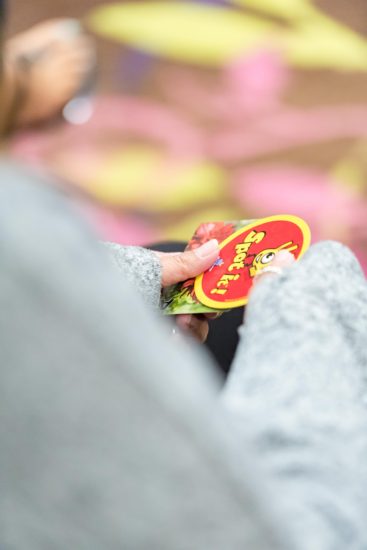
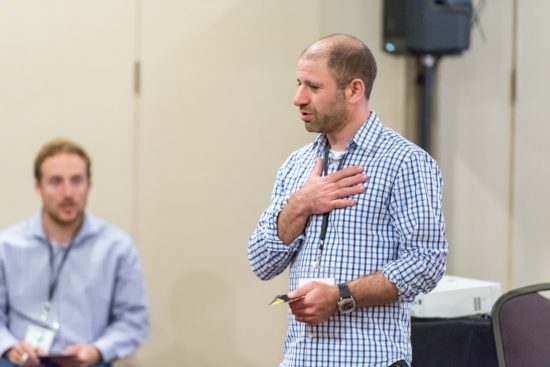
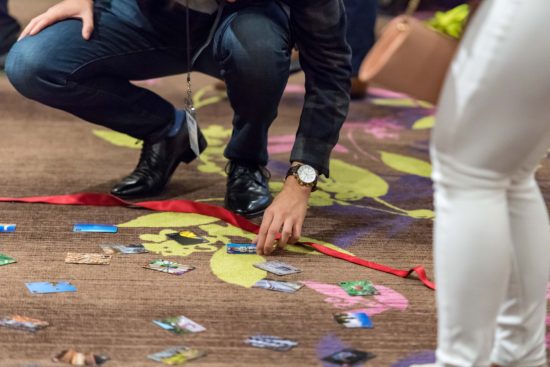
Strategies for Bringing Evidence-Based School Mental Health Programming to Scale in Sustainable Ways
![]()
presenter: Dr. Kathy Short
when: Day 1 – Session 2
FROM PILOT TO PRACTICE
Schools are an excellent place to promote student mental health and well-being, and to identify and support those who may be at risk for social-emotional problems. And, the research is clear regarding the specific types of school-based programming that can be effective in this area. However, all too often, evidence-based practices in school mental health are introduced with enthusiasm but never reach their promise in enhancing student well-being because they are abandoned before they can provide meaningful impact. In this interactive session, key foundations for scalable and sustainable mental health promotion and prevention programming will be explored.
Learn MoreEmbedding Well-being as a Core Role for K-12 Education
![]()
presenters: Dr. Kathy Short, Dr. Katina Pollock, Vani Jain
moderator: Dr. Jean Clinton
when: Day 2 – Session 4
PANEL DISCUSSION – PLAYING THE LONG GAME TO EMBED WELL-BEING IN ALL OUR CLASSROOMS
Taking a system change approach to sustainably address student and staff well-being
All young people deserve to be in school environments that support their well-being. For that to happen, we need to move beyond one-off efforts: every teacher and school needs to have the capacity and conditions to take on this role in a sustainable fashion. This requires long-term change – shifting culture, structures, priorities, and practices of schools and the education system at-large to better incorporate social and emotional well-being as a key role. This session will offer three expert perspectives on a systems change approach to promote well-being in schools: one focused on staff well-being, one on leadership and organizational conditions, and one on elements of an integrated approach.
“Staff and student well-being are an increasing concern for teachers, school leaders and governments alike. Ideas for projects and tools can be helpful in addressing issues in the short term, but if we want long term change, we need to understand the complexity of these issues and learn how to build sustained capacity.” – Dr. Kathy Short
Learn MoreWell-being, stress and the Internet: Strategies to assist and empower students in their use of technology
![]()
presenter: Thierry Karsenti
when: Day 2 – Lunch
STUDENT STRESS REDUCTION STRATEGIES
It is commonly held that technology, and particularly the Internet, will play a key role in academic success for students from now on. However, these world-changing inventions can also constitute a significant source of stress. This presentation includes a number of strategies meant to assist and empower students in their use of technology and the Internet while reducing stress and increasing feelings of well-being. These strategies are based on several studies that examined 5,000 students over the past school year.
*Bien-être, stress et Internet : Stratégies pour accompagner et responsabiliser les élèves
Learn MoreImproving Educators’ Resiliency to Stress
![]()
presenter: Dr. Andrew Miki and Dr. Matthew Balcarras
when: Day 1 – Session 2
MENTAL HEALTH FITNESS SKILL-BUILDING
Training your brain to increase mental fitness, decision-making skills, assertiveness, and confidence
Educators draw upon their professional experience to create a process to run school districts, schools, and classrooms, but typically, they don’t have a process to manage their own stress.
Using strategies based on Cognitive Behaviour Therapy, participants will learn techniques to increase their ability to detect early signs of stress, regulate their emotions, and resolve stressful issues. Practicing these strategies leverages the brain’s neuroplasticity to create more positive connections and break old problematic ones.
“One in three Canadians will experience mental health problems. Canadian educators work in a demanding and potentially high stress profession. Overall, this can increase the prevalence of anxiety and depression. This workshop will help educators understand the triggers that affect their mental health and teach specific evidence based skills to improve resilience to stress.” – Dr. Andrew Miki
Learn MoreA Different Kind of CHAT Room
![]()
presenters: Brianne Link, Anne Kromm
when: Day 1 – Session 1
PROGRAM DEVELOPMENT CASE STUDY
The Cochrane Healing Art Time Program – designed to support student mental health.
The educational benefits of using the healing arts for learning empowers students to develop self-esteem, confidence, advocacy, resiliency, efficacy, peer relationships and mental wellness. Developing these skills within the CHAT Room’s safe and caring environment allows students to improve their coping skills, enabling them to deal with personal issues and academic stressors more effectively.
By sharing real life stories that evoke emotion and inspiration, participants will understand the value in supporting students’ mental health and wellness through the healing arts and how they can take these ideas and tailor them to their own school culture.
“Anyone who works in education knows the importance of supporting our students’ mental health and wellness within our schools, which allows us to build understanding and acceptance as educators. The CHAT program provides access to students who need a different kind of path to attain success in both school and life. Truly understanding our students allows us to support them on a whole new level.” – Brianne Link
Learn MoreSupporting Educators’ Mental Health: Workplace Mental Health Barriers and Strategies
![]()
presenters: Kathleen Qu, Dr. Sam Ozersky, Dr. Sagar Parikh
when: Day 1 – Session 1
STRATEGIES TO SUPPORT EDUCATOR WELL-BEING
Addressing educators’ mental health lays the foundation for successful initiatives that aim to improve student mental health and foster safe school environments. Mental health among educators is particularly challenging due to the demanding task of balancing administrative priorities, personal passions, family life, and students’ individual success.
Through guided meditation and a self-help exercise, participants will identify the barriers that they face when addressing their personal mental health and learn about resources available to help them develop a strategy for a workplace culture that accommodates mental health needs.
“Educators serve as role models in their personal lives and professional careers. Their mental health is vital to the success of students. We explore the unspoken conversations that are key to breaking down barriers to develop effective strategies for engaging educators in their personal mental health.” – Kathleen Qu
Learn MoreL’art de raconter
presenter(s): Guylaine La Casse, André Quesnel
when: Day 2 – Session 4
TECHNIQUES PRATIQUES POUR L’APPRENTISSAGE DANS LA JOIE
Pour éveiller le plaisir d’apprendre et de communiquer en français par l’entremise de nombreuses techniques d’animation
Dans cet atelier, vous verrez des outils stratégiques pour animer vos contes avec ou sans livre afin d’éveiller chez l’élève l’émerveillement, la curiosité, le goût d’apprendre et d’explorer. À travers les récits de vos animateurs, Guylaine La Casse et André Quesnel, vous plongerez dans de nouveaux horizons dans l’« art de raconter » et apprendrez de nouvelles techniques d’animation. Parmi elles, vous découvrirez la stratégie du conte « château », « à gestes », « à consignes », « à dessins », « de ficelle », « de sable », « d’accessoires à sons » et de bien d’autres encore. Par des mises en situation expérimentées en salle de classe ainsi que des exemples concrets, vous serez initiés à des stratégies d’apprentissage que vous pourrez exploiter en salle de classe afin d’offrir différents projets en littératie. « L’art de raconter » c’est où l’apprentissage s’intègre au plaisir et au bien-être : un mot clé de la réussite pour susciter le plaisir de communiquer en français.
« “L’art de raconter” offre des stratégies d’apprentissage à l’oral. Ces techniques d’animation permettent également de les exploiter pour différents domaines du français ; lecture et écriture. Elles stimulent chez l’élève le goût de participer, d’apprendre tout en développant son propre potentiel créatif, et ce dans le plaisir ! » — Guylaine La Casse
Learn MorePour assurer une école bienveillante : le Soutien au Comportement Positif (SCP)
![]()
presenter: Steve Bissonnette, PhD
when: Day 1 – Session 1
PROCÉDÉ POUR LE DÉVELOPPEMENT D’ÉCOLES PLUS SÉCURITAIRES
Le développement d’une école bienveillante implique la création d’un milieu de vie sécuritaire, ordonné, prévisible et positif à l’intérieur duquel l’enseignement et l’apprentissage sont favorisés. L’implantation du système le Soutien au Comportement Positif (SCP) dans les écoles favorise le développement d’un tel milieu de vie.
Dans cette présentation, nous décrivons, au départ, le système SCP et ses différentes composantes. Par la suite, nous montrons les effets du SCP sur la diminution du nombre d’écarts de conduite majeurs à l’intérieur des écoles contribuant ainsi au développement d’un milieu bienveillant.
Learn More
Appuyer le bien-être des éducateurs dans un contexte de minorité linguistique et culturel
presenter: David Bouchard
when: Day 1 – Session 2
DISCUSSION VIVIFIANTE
Nous, les francophones, on est chargé de balancer les exigences académiques de nos étudiants avec ce que nous savons être essentiel, les nombreux éléments de notre culture.
À partir des idées et pensées inspirantes que contiennent ses plus de 50 livres à l’intention des parents et des éducateurs, David Bouchard amènera les participants à discuter franchement de ce que signifie pour les éducateurs l’ouverture totale à leur propre bien-être – et à celui de leurs élèves – dans des contextes de minorité autochtone et linguistique.
Learn MoreMettre le bien-être et la réussite des élèves et du personnel au coeur de vos priorités
presenters: Eugénie Congi, Melissa Riley, Louis Barrière and Ann-Michelle McNulty
when: Day 1 – session 3
NOUVELLES PRATIQUES PROFESSIONNELleS
De nouvelles pratiques professionnelles pour transformer de l’expérience d’apprentissage
Malgré de très bons résultats aux tests de l’Office de la qualité et de la responsabilité en éducation de l’Ontario, le Conseil des écoles catholiques de l’est (CECCE) cherche constamment à s’améliorer en collaboration latérale avec son personnel, ses élèves et leurs parents. De plus, le CECCE établit des partenariats avec des homologues en éducation pour élargir sa communauté professionnelle apprenante. À l’ère de la mondialisation, de la globalisation et de l’intégration des nouvelles technologies, le CECCE met en œuvre des stratégies efficaces pour favoriser l’engagement des élèves et du personnel, assurer leur réussite et bien-être.
L’atelier permettra au public cible de connaître le cheminement d’un conseil scolaire à l’égard de la mise en oeuvre d’une vision stratégique qui priorise le développement des apprentissages en profondeur auprès de tous les élèves de la maternelle à la 12e année. Un accent particulier sera mis sur la façon dont le CECCE veille au bien-être du personnel, considérant le fait que ce sont les intervenants et les intervenantes dans les écoles qui travaillent quotidiennement sur le terrain pour mettre en oeuvre cette vision stratégique.
Learn More